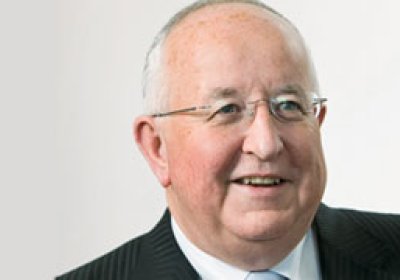As one who took part in demonstrations against the war in Vietnam, I could hardly believe it when the US “war machine” resurrected itself and began its march on Iraq.
Appalled by what appeared to be happening, I was delighted to discover, following a rally in November 2002, that a local peace group had been created. I joined that group and began actively campaigning for peace which I continue to this day.
Australia
Figures released by the department of immigration showed the number of refugees held in Australian mainland detention peaked at 10,271 in November last year, the highest since mandatory detention began.
This included housing and alternative places of detention, but not the almost 400 men held on Nauru by that time.
Children made up 1221 of those held in detention as at December, another record high. The last time more than 1000 children were held in detention, the government was forced to allow more than half to be released.
This is an extract from a zine written by Resistance members. You can pick up a copy from a Resistance stall on campus during Orientation week.
***
Like any other day, a female student is on her way to campus. As she rides her bike down the main road, a head pops out a moving car window and yells out to her: “Nice legs!” Later that day she receives a text from one of the men in her group assessment task who she barely knows: “Hey beautiful we should definitely have a beer sometime ;)”.
The Darwin Asylum Seeker Support and Advocacy Network (DASSAN) released documents exposing the “appalling” extent of child self-harm in a Darwin detention centre on February 18.
DASSAN obtained the documents via a Freedom of Information request, which took the department of immigration more than nine months to release. They detail 26 cases of self-harm by detained refugees aged 9 to 17 between August 2010 and November 2011.
Spokesperson Fernanda Dahlstrom said the documents “concern one detention centre over a relatively short period of time”.
More than 30,000 Victorian teachers and education support (ES) staff walked off the job on February 14 in their campaign for better pay and conditions.
Government figures show that 65% of school staff took part in strike action and 300 schools did not have students. Meredith Peace, Australian Education Union (AEU) state president, also reported that more than 300 schools were brought to a standstill and that every school in the state had some form of disruption.
A picket line that lasted for two weeks at the site of a water treatment plant in Werribee has been disbanded. The Age reported that the protesters left the site on February 14 after “police and the water authority warned them they were trespassing”.
The picketers — established by unemployed tradespeople — were protesting the employment practices of Tedra Australia and its associated subcontractors.
This was a speech given to a One Billion Rising event in Sydney on February 14.
***
I'd like to welcome you all here tonight. I'm a Kairi and Badjula woman, so I can't do a welcome to country, but I can do an acknowledgement. So I'd like to acknowledge that this celebration is taking place on the stolen lands of the Gadigal people of the Eora Nation.
The Gadigal people were the first to endure the impact of invasion and as a result their communities were decimated. Invasion was a violent process, though history has tried to cleanse it was with the word colonisation.
About 400 people rallied outside NT parliament on February 12, the first sitting day for 2013, to protest the Country Liberal Party's (CLP) service cuts, job losses and price hikes.
The CLP came to power in August, promising to decrease the deficit but pledging "Your job is safe" to concerned public servants. By December, when the government's mini-budget was released, that promise was broken and it was revealed that 600 jobs would be scrapped.
Several hundred people attended a night of solidarity with Cuba at the Uruguayan Club in western Sydney on February 9.
The event, organised by the Committee in Solidarity with Cuba, Western Sydney, raised funds to help pay for repairs to the widespread damage caused to homes and infrastructure by cyclone Sandy last year. It featured entertainment by a variety of cultural groups from the Latin American community.
Guess who thinks the Mineral Resource Rent Tax (MRRT) is working well?
Sorry, but there's no prize if you guessed right.
“The MRRT was designed as a tax on super profits on the mining industry and importantly the tax is actually operating as it was physically designed," mining giant Rio Tinto's new chief executive Sam Walsh told AAP.
Err, yes, very well designed — for some — by a Gillard government fresh from the ALP leadership coup, with more than a little help from the biggest mining companies.
About 80 residents held a rally outside Coburg Town Hall before a meeting of Moreland City Council on February 13. They then went into the Council meeting and raised their concerns during question time.
The rally was organised by Save Coburg, a residents group recently formed in response to the proposed new Coburg Structure Plan. This plan includes 10-storey buildings alongside existing homes.
The Knitting Nannas Against Gas staged an anti-coal seam gas (CSG) protest outside the office of Lismore MP Thomas George on February 13. The protest was held to coincide with a stop-CSG action in Casula, Sydney, outside the Liverpool Chamber of Commerce, which hosted a luncheon with NSW Premier Barry O'Farrell.
The Knitting Nannas Against Gas, who have been actively supporting the blockade to stop CSG mining at Doubtful Creek, sent this message to be read out at the Casula action.
***
- Previous page
- Page 673
- Next page





